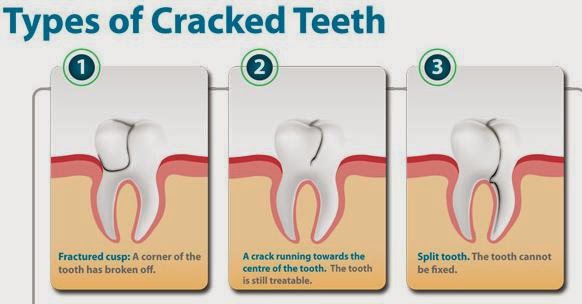 |
| Low, Medium, and High Lip Line |
 The gum tissue surrounds the teeth. The gum tissue should fill in the space between the teeth that touch so that all you see is gums and teeth - no spaces. Where the tooth appears to come out of the gum, the gum should have a scalloped (wave-like) look. The gum should be situated higher on the central incisors (front two teeth), lower on the lateral incisors (smaller two side teeth), and higher again on the two eyeteeth. Usually, the gum tissue is higher around the eyeteeth than the front two teeth. And, of course, the left and right sides should be a mirror image of each other. This scalloping should follow the upper lip line. Correct appearance here is of primary importance in developing a perfect smile. If the height of the gum is too low or too high around a specific tooth or several teeth, even if the teeth are straight, they will look "wrong." Gum position defects can be (and should be) corrected before any major front tooth restoration. Treatment may be minimal or major, depending on the number of teeth and type of problem present.
The gum tissue surrounds the teeth. The gum tissue should fill in the space between the teeth that touch so that all you see is gums and teeth - no spaces. Where the tooth appears to come out of the gum, the gum should have a scalloped (wave-like) look. The gum should be situated higher on the central incisors (front two teeth), lower on the lateral incisors (smaller two side teeth), and higher again on the two eyeteeth. Usually, the gum tissue is higher around the eyeteeth than the front two teeth. And, of course, the left and right sides should be a mirror image of each other. This scalloping should follow the upper lip line. Correct appearance here is of primary importance in developing a perfect smile. If the height of the gum is too low or too high around a specific tooth or several teeth, even if the teeth are straight, they will look "wrong." Gum position defects can be (and should be) corrected before any major front tooth restoration. Treatment may be minimal or major, depending on the number of teeth and type of problem present. The teeth themselves should generally follow the lip line from left to right. They should be proportional to each other and themselves. Most often, a length to width ratio of 1.6:1 is desirable. Adjacent teeth also follow a similar proportional ratio when viewed straight on. If individual teeth are too long, wide, not in proportion to each other, or not mirror images left to right, esthetic problems result.
The teeth themselves should generally follow the lip line from left to right. They should be proportional to each other and themselves. Most often, a length to width ratio of 1.6:1 is desirable. Adjacent teeth also follow a similar proportional ratio when viewed straight on. If individual teeth are too long, wide, not in proportion to each other, or not mirror images left to right, esthetic problems result. We can recognize these problems and offer suggestions for improved esthetics. You may look and not know what is wrong with your smile, but you know that you do not have the smile you want. It may not be the teeth alone. The framing of the teeth by your lips and the architecture and position of the gums surrounding your teeth are two variables in a three-part equation for a perfect smile - yours!
If you have any questions about your perfect smile, please feel free to ask us.



 The winter holidays are known for sweet treats and tempting
goodies, but that doesn't mean that you have to end up at the dentist
with cavities in January.
The winter holidays are known for sweet treats and tempting
goodies, but that doesn't mean that you have to end up at the dentist
with cavities in January.  Use your holiday vacations to spend more time brushing your
teeth. If you're relaxed or have more free time during the day or with
your morning or nightly routine, you can use the time to brush more
thoroughly and develop better oral care habits.
Use your holiday vacations to spend more time brushing your
teeth. If you're relaxed or have more free time during the day or with
your morning or nightly routine, you can use the time to brush more
thoroughly and develop better oral care habits. 

























